As of today, November 22nd, 2023, three episodes of Monarch: Legacy of Monsters are available for streaming on Apple TV+. Starring Anna Sawai, Ren Watabe, and Kiersey Clemons, not to mention both Wyatt Russell and Kurt Russell as the same character, everyone is talking about this instant smash-hit series.
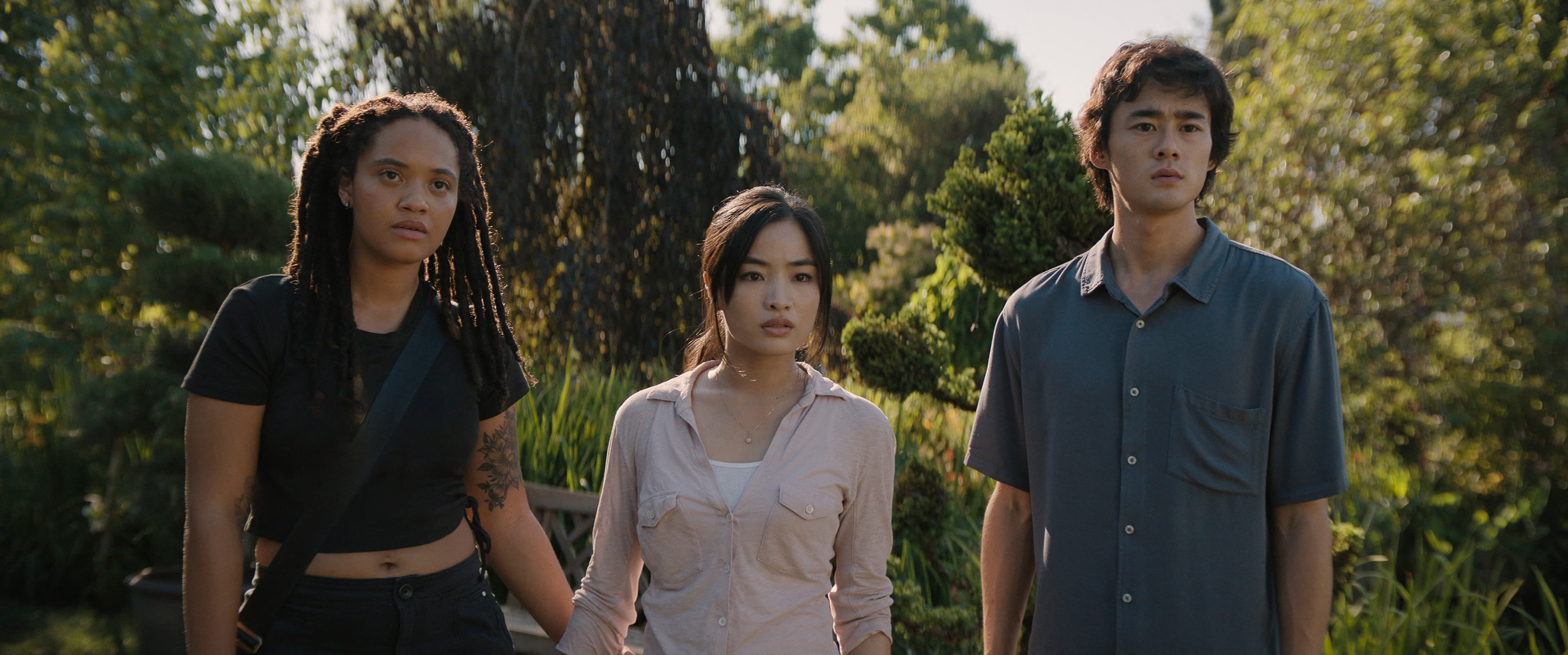
To mark the occasion, Comics Beat caught up over Zoom with VFX Supervisor Sean Konrad, Executive Producer Tory Tunnell, Executive Producer Matt Fraction and Showrunner/Executive Producer Chris Black.
Interviews have been edited for clarity and length.
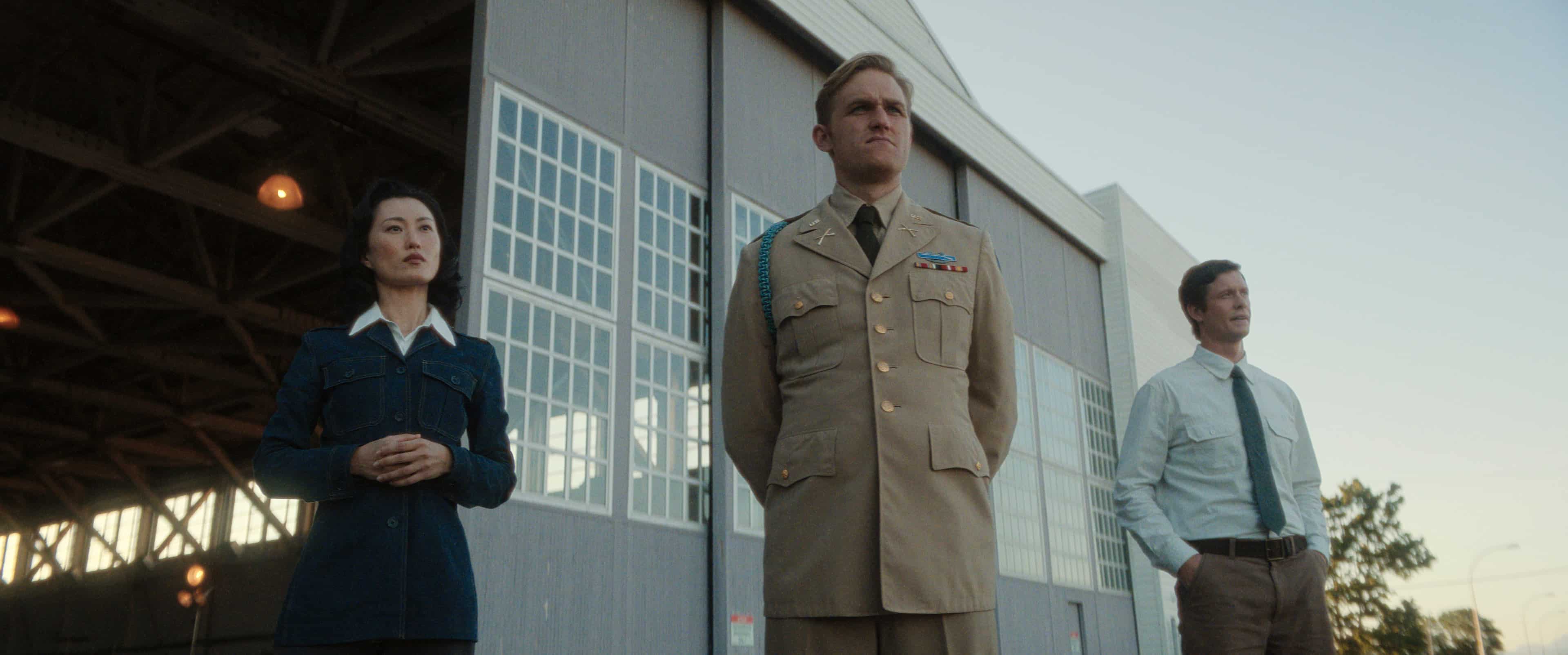
VFX Supervisor Sean Konrad
First up, The Beat spoke with VFX Supervior Konrad. A veteran of the MonsterVerse, he brings a perspective that reaches back to the first movie in the franchise.
COMICS BEAT: How did you come to be involved in this project?
SEAN KONRAD: I knew some people at Legendary, and at some point last year or two years ago, they ping me about whether or not I wanted to have a call with Fraction and Black. And when I saw Fraction’s name, and I looked at what Black had done, I said, “Absolutely, I want to have a conversation.”
So we had a call, and we talked about monster movies that we liked that were the creative touchstones. And it was like very clear that this was going to be a project I wanted to be a part of.
I’d worked on Godzilla (2014). King of the Monsters before this and as an artist on Godzilla (2014). And working on Godzilla’s atomic breath was one of the big things that I was part of, with a lot of other people. And that experience was one of the biggest highlights of my career.
THE BEAT: Where did you turn for inspiration for the big Titan set pieces? Were there any particular movies or anything that served as inspiration?
KONRAD: I mean, a whole lot of things. It’s kind of ingrained in science fiction writer DNA, things like Aliens. But a lot of it was: Gareth Edwards had a lot of ideas of how he wanted to do a Godzilla movie from the human perspective, and we really wanted to take that philosophy.
This is a story about humans. Tthe emotional moments and the emotional truths of our heroes drive what the set pieces will be, because it had needs to be sort of metaphorical for their interiority and other things like that. So we take inspiration from all those places, but we also try to do something unique in a way that, maybe we harken towards something like that, but try to make it a little different.
And really, no matter what we’re doing or harkening to, JAWS or whatever, we’re really making the people the center of that experience.
THE BEAT: What goes into making digitally created monsters feel real?
KONRAD: We take inspiration from the natural world. Every creature on our show has some sort of, “Hey, we think this weird thing from the bottom of the ocean is freaky and strange.” And we want to take that and use that as a basis for the creatures mouth or, like the appendages coming out of its face. The star nosed mole, for example, is one of the things that we took inspiration from.
That’s where we start, and then the next part of it is really taking time with the animation, working with skilled artisans to bring weight and complexity to the movements. And then also, once you’ve done the realism part of it, to find a personality. Because it’s not just that the monsters are moving through the world in a rote, mechanical way. They need to have personalities, they need to have something complex to give them something to be memorable in some way.
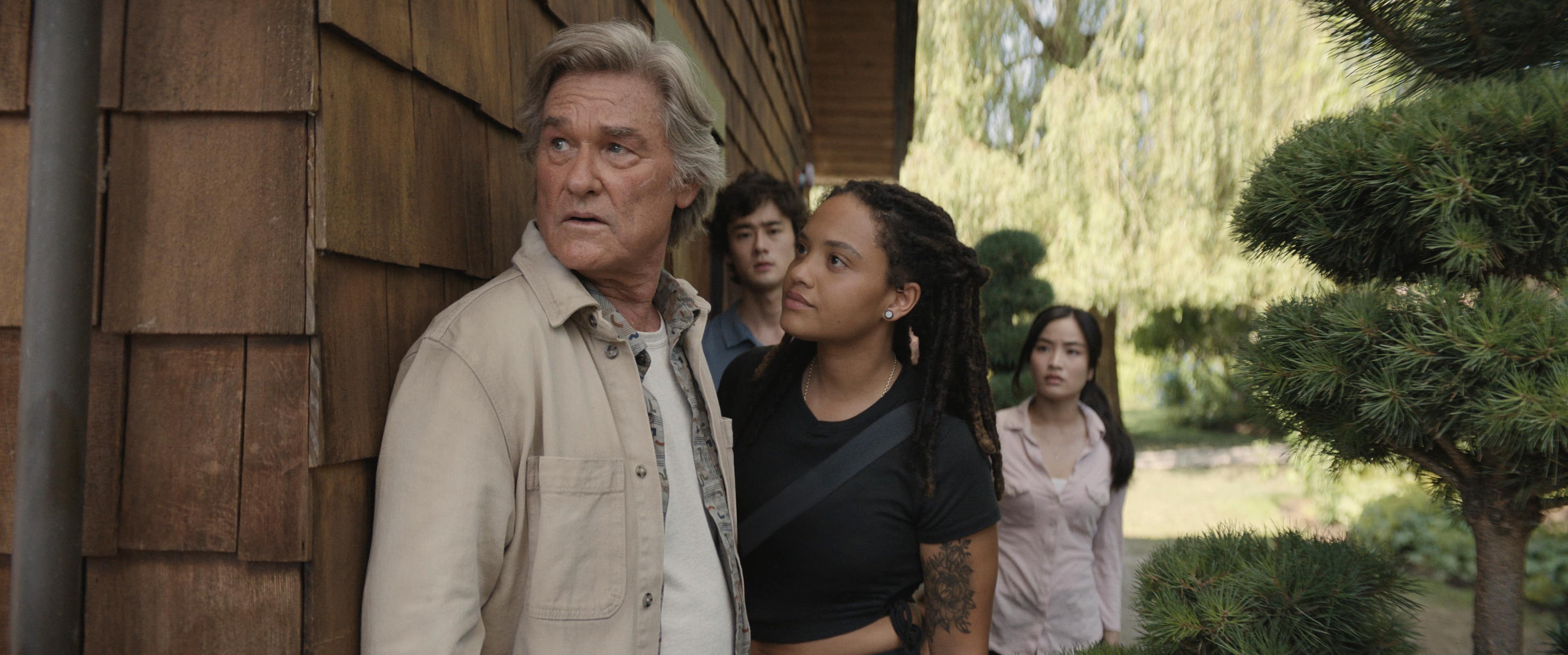
EP Tory Tunnell
Next up, The Beat spoke with Executive Producer Tunnell. Tunnell and her husband Joby Harold, who is also an Executive Producer on Monarch, run the production company Safehouse Pictures.
THE BEAT: How did you come to be involved?
TUNNELL: We had the great privilege where Legendary invited us to join the party, as it were. Fraction was already at the table and had decided that Monarch was the area that he wanted to explore. And we had the privilege of coming on and helping him shape it and go on to sell it to Apple TV+, and then build the team from there.
THE BEAT: Can you tell us about exactly what your responsibilities on Monarch look like?
TUNNELL: As a non-writing EP, oftentimes, we’re the first people on the show and the last people off the show. We’re in charge of really helping to assemble the amazing team of talent that we have, bringing you this incredible entertainment. I always like to think that we’re backing our quarterback and trying to make everyone else shine.
But we’re there through the casting process. We’re there through script development, we’re there on set, we’re there in the edit, we’re there in the effects, all the way to sitting here in this chair and talking to you.
But we’re really, essentially, helping our showrunner and/or director, who are all dealing with all these different ideas and goals, and trying to shepherd that and keep it all together, so that hopefully it all feels cohesive and dynamic.
THE BEAT: Has there been an individual element of the series that’s been particularly rewarding to see come to fruition?
TUNNELL: You know, it’s fun. We’ve worked on a lot of big spectacle movies in the past. And I think that there’s always there’s a certain piece of magic, even though we’ve been working on the show since 2018, 2019. It takes, you know, a minute for these things to really cook.
And we’ll see so many different cuts of it. But when you see that final cut with all the VFX, and with a Leopold Ross score, if you feel like an audience member yourself. You get goosebumps. And it is so exciting when it’s all together and fully cooked.
THE BEAT: Do you have an interesting story about production that you can share that our readers might not have heard yet?
TUNNELL: One of the things I thought was so cool is, we had one of our sequences we shot on the top of a glacier. And we were really debating whether or not we’re gonna shoot that on a soundstage: it was a little bit unpleasant for actors to be shooting on top of a glacier. We didn’t have a set and all the conforts that come with it. And Kurt Russell was so excited to go up there, I think that he brought the enthusiasm. And I think that everyone felt, “Well, if he’s going to do it, I’m going to do it.”
But everyone got in a helicopter went to the top of this mountain and worked in some pretty cold and challenging circumstances, but I think it really added to the authenticity of the show.
But it was absolutely Kurt leading the way and being who he always is, which is a leader and enthusiastic and just a ton of fun.
THE BEAT: Do you have a personal history with Godzilla?
TUNNELL: I think that everyone has a personal history with Godzilla. I’ve spoken about the fact that I feel like there’s no moment when you remember you first encountered Godzilla, because it feels like he’s always been there.
It’s like Santa Claus, or any of these kind of iconic characters that you’ve grown up with as a kid. And so, Godzilla, it’s so exciting to step in the ring with him because he’s an icon.
THE BEAT: Do you have a favorite Titan?
TUNNELL: I’d have to say Godzilla, only because we’ve spent so much time with him this season, thinking about him and everything that he represents. I think that what’s so exciting about Godzilla is that he’s always been a metaphor for a challenge for humanity.
And initially, it was nuclear power. We’ve joked about the fact that during the course of our show, it’s been global warming, and then it’s been COVID, and then it’s been international war. But I think that good genre is always a great reflection of humanity, disguised through great entertainment, and I think that Godzilla has always been emblematic of that.
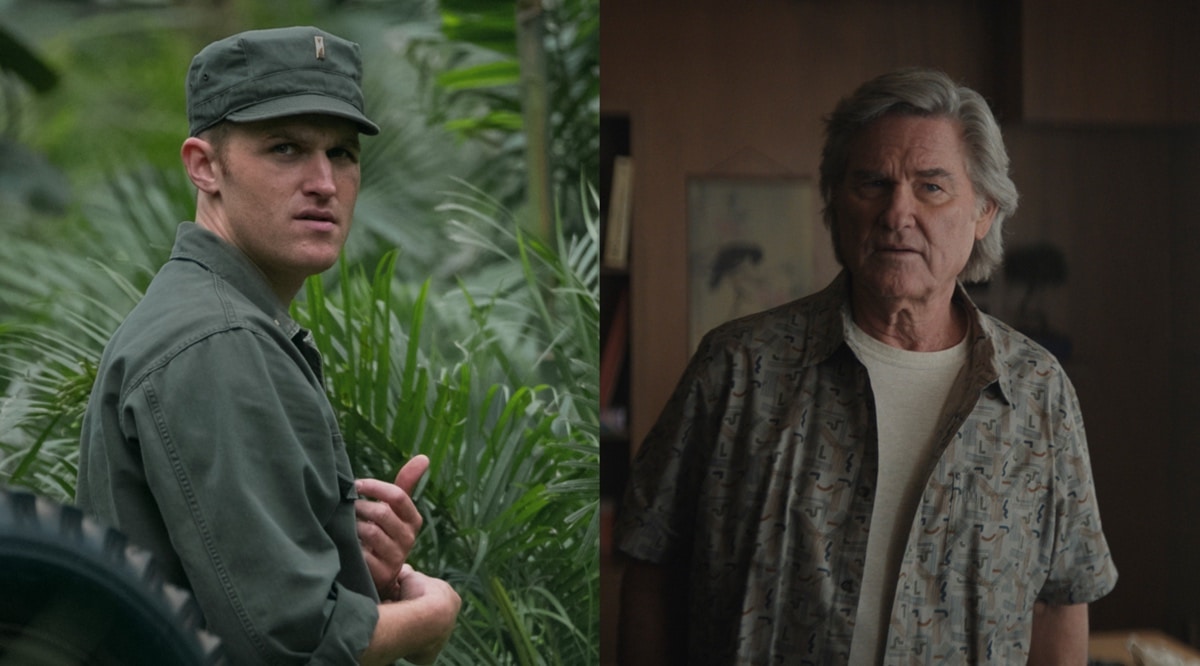
Showrunner/EP Chris Black and EP Matt Fraction
Finally, The Beat caught up with Showrunner/Executive Producer Black (Severance) and Executive Producer Fraction (Hawkeye).
THE BEAT: Viewers will quickly notice the emergency signs featured throughout the series, like the Godzilla evacuation routes. Can you tell us a bit about what inspired this and how it informs the world?
MATT FRACTION: Part of the thrill and excitement for us was to get to build the world, the granular texture of what it would be like to live in a world where Titans are real and Titan evacuation drills are a part of life.
We talked about how it’s not a 9/11 show. It’s not about disaster. It’s about the day after disaster. It’s about the first time you have to take your shoes off to get into an airplane. And so we were always looking for little ways to make the world change around the edges, little peripheral details like that.
And our astonishing art department ran with it and came up with all kinds of great little things, that you don’t necessarily hang an episode around. But it’s little textural things that makes the world feel more real lived in and real.
THE BEAT: Monarch has a story that interweaves multiple timelines. What kind of challenges and rewards does this kind of chronology create?
CHRIS BLACK: It’s always a little challenging you and you jump around in time. You need to keep everything straight. We need to make sure all the stories are lining up and that the past story is feeding the present story in the way that we want it to. So it’s always a little more complicated than just a straight linear narrative.
But I think what was really fun and rewarding about it was we wanted to tell this multi generational story, about the foundation of Monarch and how the the legacy and the history of the Randa family is just inextricably entwined with that. The pilot episode is really about understanding and revealing Cate’s trauma, and how her trauma is a direct result of her relationship with her father, that that had rolled downhill from his own father.
And then as you step back through the generations to see how the sins of the fathers are visited upon the children, you can follow that story all the way back to the creation of Monarch. And that was what was really fun for us was to take that deep dive into the backstory of Monarch, the organization that you see in the movie.
We had a sort of an edict in the room as we were breaking the season that if you could take the flashback out and the episode still worked, the flashback wasn’t working. The flashback had to inform the present day story and not just be, “Oh, you learned something about Monarch, then.” But you learned something about the characters; there had to be some human moment in those flashbacks that makes that resonate in the present with our characters. So we understand as viewers more how they became the people they became.
THE BEAT: You alluded to the family nature of the story, and behind the camera, there is the Russell familial relationship. I’m curious, was that casting a conscious decision? Or did it just come organically?
BLACK: Well, that was just such a brilliant lucky stroke of casting. Because the character was not was not designed for Kurt and Wyatt. But, as soon as we found out that they were available and interested in playing a role like this… For us, it was just too perfect. And they brought something to that role.
The fact that it is Kurt and Wyatt playing not a father and son, but the same person, pulled that story together in a way that I don’t know—even if we had cast two great actors who were unrelated—I don’t know if there would have been that connection the way there is with with those two guys.
FRACTION: And Lee Shaw is the linchpin: he and Godzilla are the only characters that appear in both the timelines. So to be able to tell a story of how Lee-Wyatt kind of became Shaw, and then Shaw remembering what it was like to be Lee, was both a challenge that we’re able to bring to Kurt and Wyatt that they were excited to explore, and it also gave us a Northstar to to navigate towards.
New episodes of Monarch: Legacy of Monsters are available for streaming on Apple TV+ on Fridays.
Catch up on all of The Beat’s Godzilla-related coverage by clicking here!


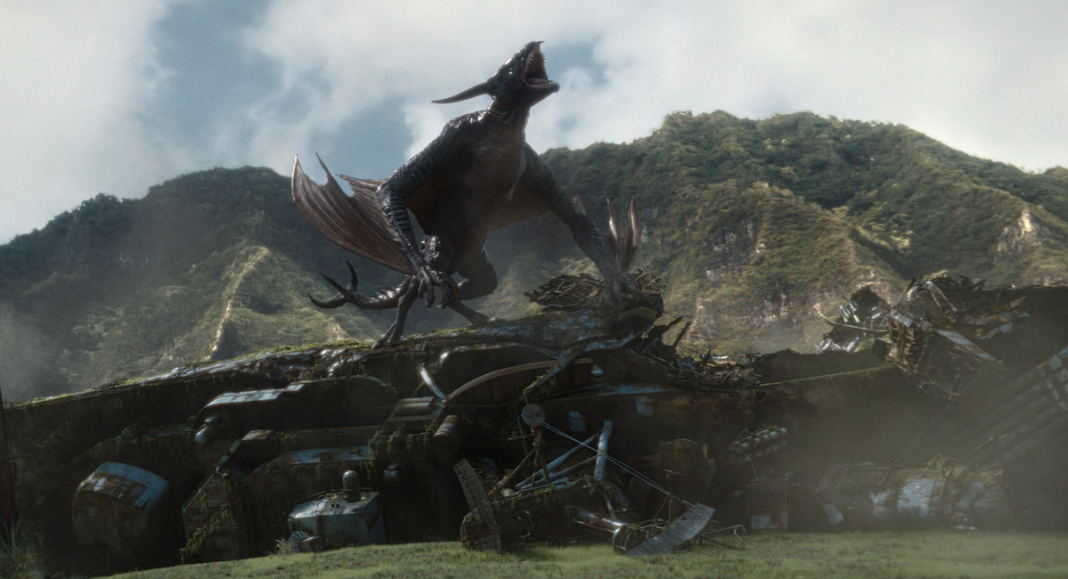
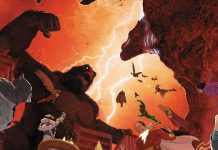
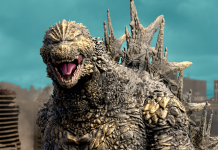

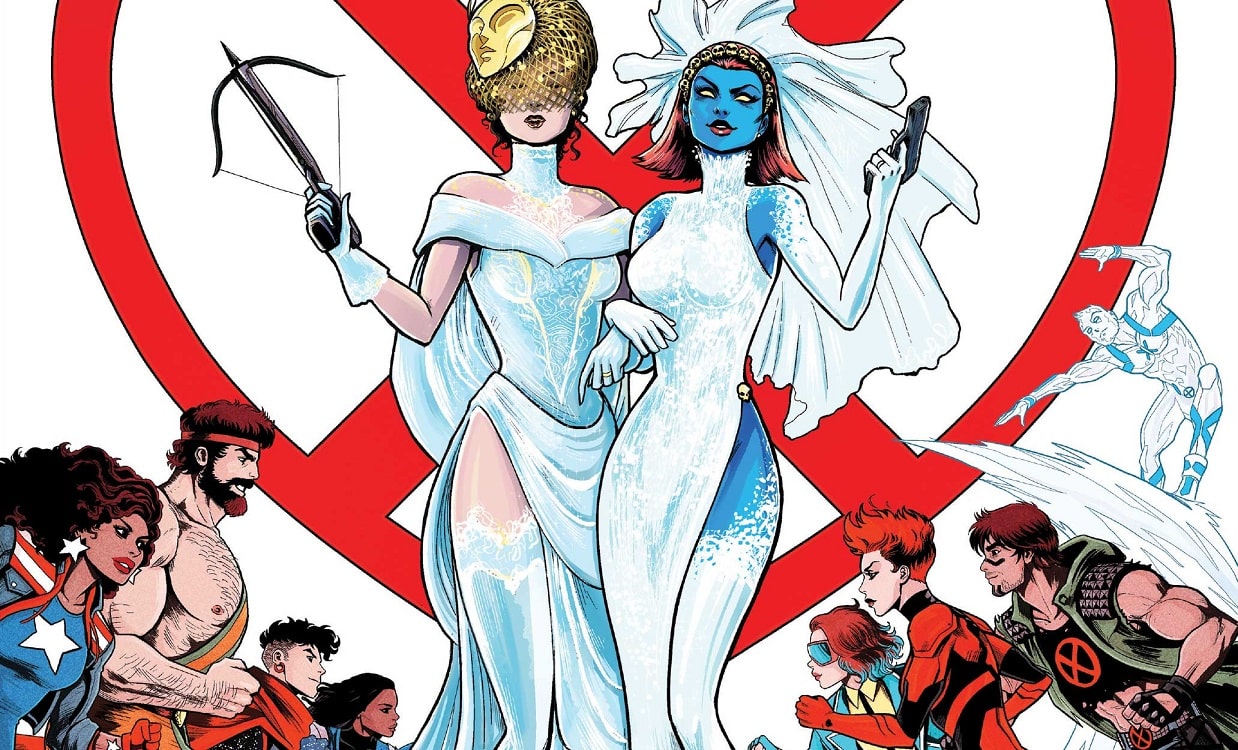

Never liked Fraction’s writing (or his weird fake/neurotic/quippy/simp persona). A hipster wannabe past his due date.
He definitely makes himself small so his wife can take up the oxygen in the room.
Also weird that Fraction does not use his real name. And of course the Beat does not call him on it (but they whined about poor CB when he used a pen name).
Don’t know Fraction or his wife and have not spent time with them so can’t speak to your criticisms about him as a person. (Though it is weird and creepy to criticize someone for that. I mean hate his writing but you met him at a party and just didn’t like his energy and hated his wife? That’s weird)
The reason why the Beat (and almost everyone in comics) went after CB but not Matt Fraction for using a pen name was the circumstances. Fraction uses a pen name because he wants to. I don’t know why.
On the hand, CB – now the editor in chief of Marvel – used a pen name because at the time he was an editor at Marvel and he wanted freelance writing gigs that his bosses wouldn’t know about. Then he wrote for Marvel under the pen name even though that was against company policy and he was breaking the rules. And he gave repeated interviews under his pen name about how he was Japanese. So it was about him as a white dude breaking and flaunting company rules and then getting promoted – and his creepy cosplaying a non-white person about all the authentic Japanese values and ideas he was bringing to American comics. Which is a little disgusting and racist for a white dude to claim.
So it’s not “whining” to point out that the EIC of Marvel is a racist white dude. It’s just pointing out reality.
But I’m guessing you know all this and just don’t care.
Comments are closed.